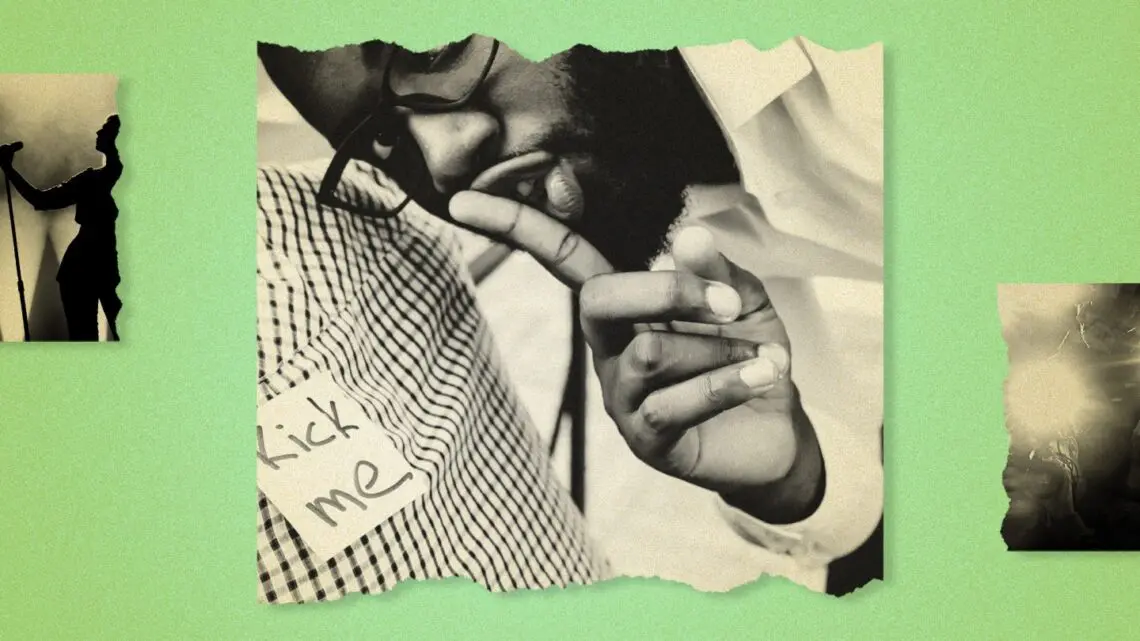Coping with a prankster spouse: a house under siege
The rise of a YouTube prankster
Dear Remy,
I’m on the verge of pitching a tent in the backyard. My husband, formerly a dashing soap star on a Canadian show filmed in Vancouver, has taken a drastically different path since his career hit a post-COVID slump. With auditions not yielding any results, he has redirected his energy towards becoming a YouTube prankster. And guess who’s his unwilling co-star? Me.
A series of pranks
In the past two weeks, I’ve been drenched by a water balloon while stepping out of the shower, found fake spiders in my coffee cup, and opened our front door to discover a life-size effigy of the two little girls from The Shining staring right back at me. The neighbors no longer stop by — not since my husband rigged our garage to look like a sinkhole had opened up, causing Mrs. Hewitt’s cat to disappear into the hedges in panic.
Our chiropractor, who used to be fond of us, no longer takes our calls after my husband pretended to “snap” his back while she was adjusting him. I’m torn between supporting his creative endeavors and putting my foot down before he starts live-streaming my reaction when he turns our jacuzzi into a ball pit. Help!
Yours,
Thanks, but no Pranks
The balance between creativity and chaos
Dear Thanks, but no Pranks,
Your home sounds like it’s one slip-and-slide away from becoming a reality TV show! Yet, it seems the pranks are only half of the issue, right? It’s not just the fake spiders or water balloons—it’s the fact that he’s pouring all his creative energy into pranks instead of something that could advance his career.
You’ve hit the nail on the head: would you be as frustrated if he were dedicating this much time to writing a screenplay or developing a one-man show? Probably not. This isn’t purely about prank videos; it’s about feeling like his potential is being wasted. And possibly some of LA’s water reserves.
It’s time for a conversation, not about the pranks themselves, but about what they signify. If he’s using this as a creative outlet, maybe you can encourage him to channel that creativity elsewhere. After all, one Logan Paul in this world is more than enough.
Best,
Remy
Embracing or escaping the public eye: a dilemma
A quest for self-cancellation
Dear Remy,
For 20 years, I’ve been in the public eye. I can’t even buy toothpaste without someone snapping a photo like it’s evidence for a federal case. I’ve reached my breaking point and think I’ve found the perfect solution: getting myself canceled.
I figure all it takes is one inflammatory statement. I could trash-talk Beyoncé, say Dolly Parton needs a makeover, or start a petition to end Thanksgiving. Maybe tweet that puppies are overrated? You get the idea. Once I’m canceled, I’ll finally be free of the fame and attention that’s suffocated me for two decades.
I’ve had a good run: as an actor, I’ve been on numerous shows mostly rated above 60% on Rotten Tomatoes, partied in VIP lounges across the West Coast, and dated multiple Playboy Bunnies. But now, flashbulbs go off wherever I go. Once, I even found a paparazzo dressed as Santa Claus near my trash — pretending to be there for the neighborhood kids.
Is canceling myself a terrible idea, or am I onto something?
Yours,
A Cancel Attitude
The cost of fame
Dear Cancel Attitude,
Let’s hit pause for a moment. Is it freedom you’re after, or freedom from a version of yourself that no longer fits? Getting canceled won’t bring you peace—it will turn you into an even bigger target. Think paparazzi are relentless? Wait until the internet gets its claws into you.
If you wish to step away from the limelight, there are quieter and less explosive ways to do it. Many celebrities have managed to fade from public view by taking smaller roles or simply living more privately. Look at Rick Moranis or Frankie Muniz. You don’t need to burn your reputation to the ground to escape. And definitely avoid bad-mouthing Beyoncé, considering the current rumors.
Slip out the back door quietly and you might just find the peace you’re seeking—without the drama.
Wishing you a peaceful vanishing act,
Remy
The sensitivity of biopics: is it too soon?
A director’s dilemma
Dear Remy,
I’ve been offered a project that’s making me break out in hives. The producers want me to direct a biopic of a beloved national icon who passed away in 2020. His widow still posts tear-jerking Instagram stories about their last Christmas, and his son dropped out of college to escape the media circus.
The commercial appeal is undeniable, but it feels like the family hasn’t even had a chance to go through his sock drawer. Am I being too sensitive, or is it just too soon for this biopic? Where does it end? Fast-turnaround biopics? Biopics for people who are still alive?
Yours,
Biopic or Pass?
When is it appropriate to immortalize?
Dear Biopic or Pass,
You’re not being overly sensitive. It’s not that his family hasn’t cleaned out his fridge yet—this project feels rushed. It’s as if they’re trying to cash in on the grief while the tears are still fresh. If his family is still publicly dealing with the loss, immortalizing him on screen before they’ve healed feels like pouring salt into the wound.
Is the aim to celebrate his life or just a fast-tracked cash grab? You need to decide if you want your name attached to something that feels opportunistic. If it doesn’t sit right with you, trust that instinct. Maybe tell the producers you’d be interested in a few years, once the story has had time to breathe. Right now, it sounds like everyone—including his family—needs more time.
Best,
Remy
Sharing thought-provoking insights? Follow us for the latest updates and join the conversation on social media!

 Italian
Italian







